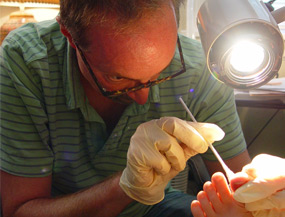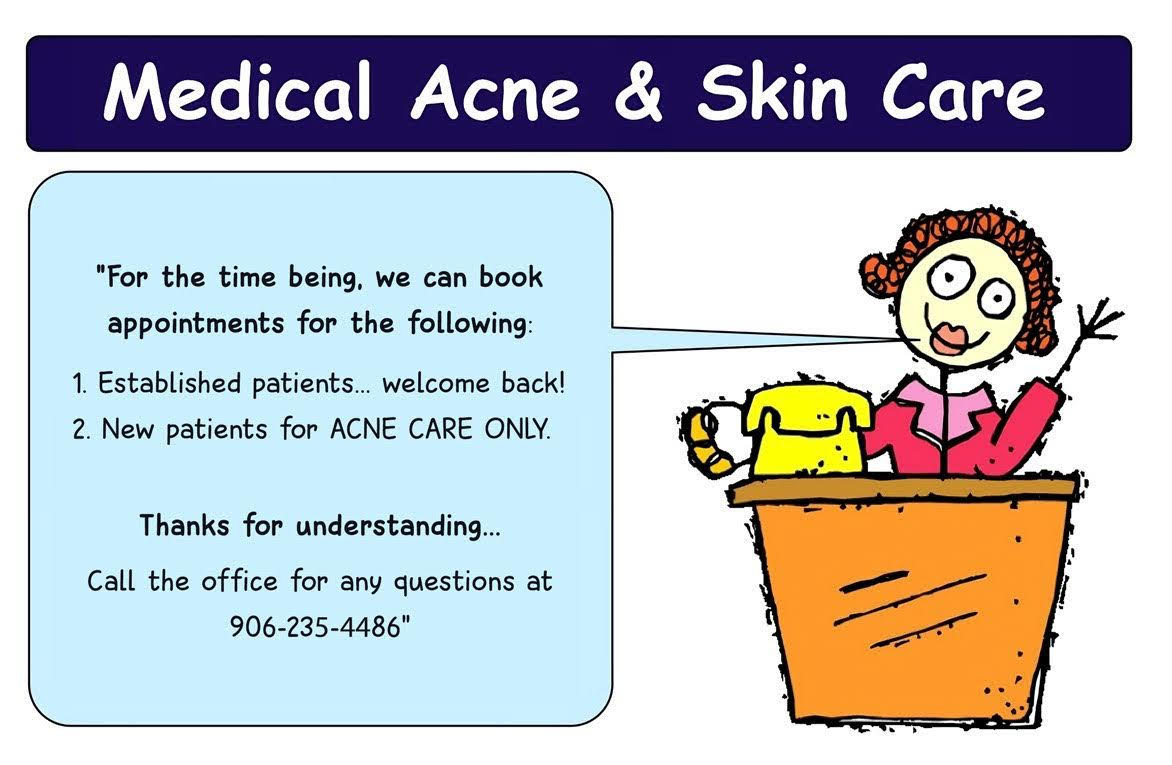WELCOME TO M.A.S.C.
150 W. Ridge Marquette, MI 49855 Tel: 906-235-4486 Fax: 906-680-4077 masc906@gmail.comAs a physician for twelve years on a university campus, I learned first hand about the emotional consequences of acne. The toll on self-esteem often runs deeper than the physical scars. Fortunately, help is available. Through a tailored approach, I saw many cases of acne clear completely. Many factors including skin characteristics, acne type, hormone balance, and even social stressors are key.
Often, acne clears with simple advice on healthy skin care, cleansers, and changes in birth control. When needed, a variety of prescription medications, including antibiotics, are useful. For the most severe and resistant forms or acne, Accutane (isotretinoin) is necessary and exceptionally helpful.
Besides acne, other skin problems effect young people. Malignant Melanoma is occurring at increased rates on college campuses. I have seen the impact of this potentially life threatening disease and have vowed to make a difference. Fortunately, most concerns over dark spots and moles can be alleviated after a careful history and skin examination. Serial measurements over time and sometimes a skin biopsy are useful. I encourage everyone to check the links below and become educated about the risks and the ABCDs of skin cancer. No one should feel intimidated about asking a question or raising a concern.
 Gregory Sulik, M.D., M.A.
Gregory Sulik, M.D., M.A.
- 1995 graduate, the University of Michigan Medical School, Ann Arbor
- Board Certified in Family Medicine
- Clinical Assistant Professor, Michigan State University College of Human Medicine
- Accutane and iPledge Certified
- Post-Doctorate training in skin disease
- 12 years' experience as staff physician, Northern Michigan University
- 20 years' treating chronic skin conditions for extended care patients at Jacobetti Home for Veterans
SERVICES
- Acne evaluation for teens and adults.
- Medical management of common skin conditions including; eczema, psoriasis, allergies, rosacea, and infections.
- Evaluation and biopsies of cancer-suspicious skin areas.
- Destruction of benign skin lesion by electro-cautery or freezing with liquid nitrogen. These include warts, spider veins and moles.
- Narrow band UVB light treatments for psoriasis, vitiligo, and eczema.
- Scar and keloid treatments.
- Injections for instant relief of large acne cysts.
- Treatment for alopecia (hair loss).



 906-235-4486
906-235-4486
 906-680-4077
906-680-4077

